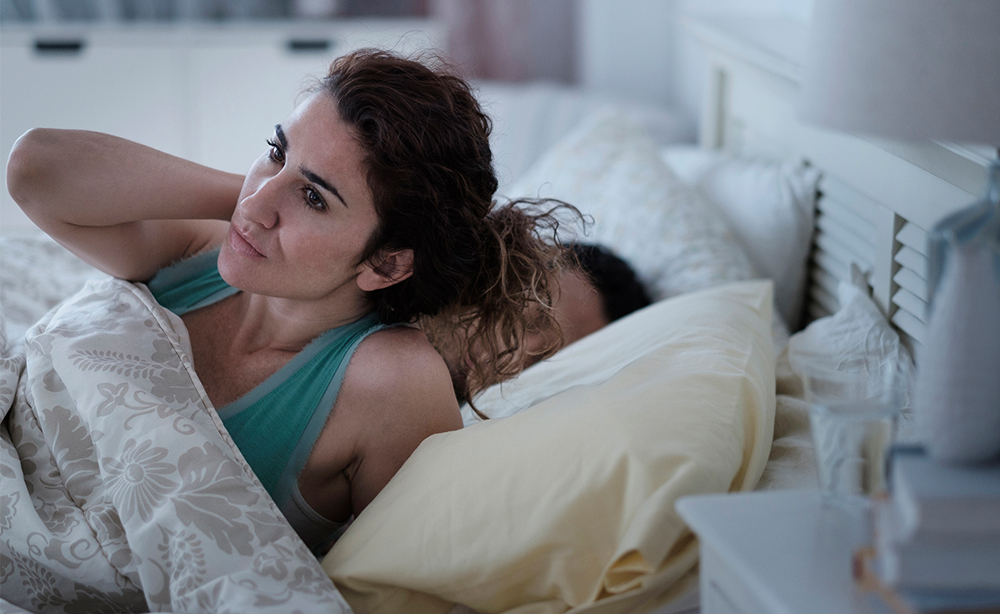Wake Up to Daylight Saving Time With Tips for Better Sleep

With the switch to daylight saving time March 13, we gained an hour of daylight — but lost an hour of sleep.
Although our circadian rhythms (our internal body clock) are generated internally, they are influenced by environment, behavior, medications, and what we eat and drink, says Oscar Schwartz, MD, BJC Medical Group sleep disorder specialist and medical director of the Barnes-Jewish West County Hospital Sleep Disorder/EEG Center.
“Generally, ‘losing’ an hour of sleep in the spring is more difficult to adjust to than ‘gaining’ an hour in the fall,” Dr. Schwartz says. “But, either way, this shifting around is problematic for our brains.”
According to Dr. Schwartz, some people have more difficulties with the one-hour time change than others. Problems can include more restless sleep, which may increase sleepiness the next day, as well as memory decline, difficulty in concentration, and decreases in mental and physical performance.
Without compensation for the loss of one hour, people may use their prior sleep cycle to tell them of the need to go to bed. If so, their biorhythm will be at least an hour too late. This will perpetuate their sleep loss over many days, rather than rapidly correcting to the new time.
This also may compound sleep difficulties in shift workers.
“If your sleep cycle is not good to begin with, this change may be even more painful,” Dr. Schwartz says. “Millions of Americans suffer from a sleep disorder, and untreated sleep disorders, as well as chronic sleep deprivation, make circadian shifts more problematic.”
Sleep disorders affect about 40 million Americans, but only 5% are diagnosed and treated. Sleep disorders include narcolepsy, insomnia, restless leg syndrome and sleep apnea. Inadequate sleep is associated with mood swings, stress, high blood pressure and weight gain.
“A person not getting adequate sleep might find themselves developing further complications associated with these issues, such as heart disease, stroke, dementia, diabetes or Parkinson’s disease,” Dr. Schwartz says.
The solution? Better sleep.
“In other countries, sleep is a priority. But in America, other activities take priority,” he says. “As only the last resort, when we have exhausted ourselves, we sleep. Sleep is a necessity, not a luxury.”
Better sleep tips
- Seven to nine hours of sleep a day is considered normal, although they don’t have to be consecutive hours. If you make up sleep with a nap, make sure you nap before 3 p.m. and limit it to an hour.
- Setting a regular bedtime and wakeup time is helpful.
- Sleep disorders, like sleep apnea or restless leg syndrome, include warning signs, such as loud snoring; stopping breathing or gasping for breath during sleep; feeling sleepy or dozing off while engaging in daily activities; difficulty sleeping three nights a week or more; unpleasant tingling, creeping feelings or nervousness; and the urge to move your legs when trying to sleep. If you experience these issues, consider a sleep study.
- If you work nights, try using earplugs and blackout drapes to improve sleep quality during the day.
- Caffeine works well for short periods, but it should not be consumed in such amounts that it disturbs one’s ability to sleep.
- Twenty to 30 minutes of good light exposure in the morning can help with transition to daylight saving time and an earlier time zone.
- Alcohol intake can have stimulating effects that affect your sleep quality, as well as your ability to fall and stay asleep.
- Don’t go to bed hungry, but don’t eat right before bed. Your lightest meal should be the one closest to bedtime.
- Complete exercise by 6 p.m. for a 10 p.m. bedtime.
- Limit screen time or other electronic device use prior to bedtime. Exposure to light, such as use of electronics and watching television, can affect your sleep.
- Over-the-counter sleep aids can be more problematic than helpful because of possible side effects, such as grogginess the next day.
- Pets have a habit of waking us up throughout the night, so have them sleep in their own beds.
Learn more about the services available across BJC for those suffering from sleep disorders.
Recent News
Article
Breathe Easier: Tips for Improving Your Lung Health
Article
Chenitra Emergency Care
Article
Leading The Way in Lung Cancer Diagnosis
Article
Safety Tips for 4th of July Firework Fun
Article
Metro East Vascular Access Center
Article